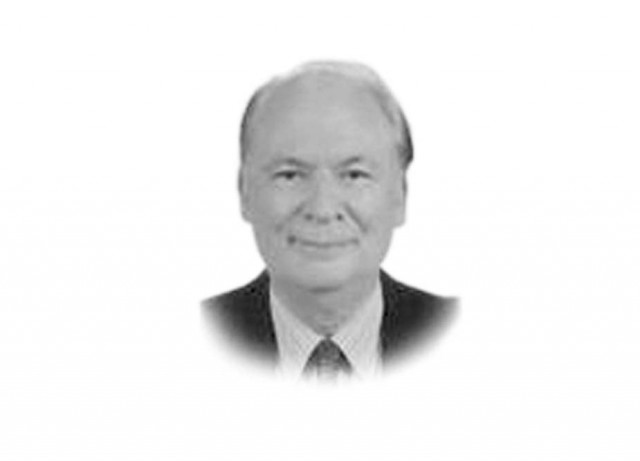A question about the Constitution’s structure
Zia’s legacy stuck hard, fast and in spite of entreaties by the few secularists who regularly quote Jinnah’s speech

anwer.mooraj@tribune.com.pk
In fact, the country had to wait for around 10 years before Fate bequeathed to us a truly retrogressive and obscurantist dictator who believed the time had come to remind us that the reason for Pakistan’s creation was religion and the time had come to return the sheep to the fold and to anoint the faithful with holy oil. His legacy stuck hard and fast and in spite of entreaties by the few secularists in the land who regularly quote Mr Jinnah’s speech at the State Bank of Pakistan about politics and religion having nothing to do with each other, Zia’s legacy has withstood the ravages of time.
With my abiding interest in constitutional matters, I have watched with weary resignation and a mixture of awe and alarm the assaults on the 1973 Constitution, which was drafted by Abdul Hafeez Pirzada. Especially the challenge to the 18th Amendment and the question posed by the Supreme Court which was fairly comprehensively reported in the local press on May 5.

“Can parliament make fundamental changes in the basic characteristics of the Constitution by replacing Islam with Secularism?” Some readers who believed the country might be on the threshold of a drastic, elemental change in identity and ideology, which would put us in the same camp as other Muslim-majority countries like Turkey, Egypt, Algeria, Tunisia, Jordan, Syria, Iraq, Morocco, Malaysia and Indonesia, called me. I informed them that Their Lordships had only posed a question. They had not endorsed or struck down a resolution or decision. But I admit I was a little perplexed.
Normally, it is an individual, a political party or a parliament that requires a clarification on a legal issue, and the authority that usually supplies the answer is the Supreme Court. Not the other way round. I was also a little confused by the use of the word ‘structure’ which is normally associated with the work of a draughtsman. But on reflection I realised that there was really no adequate substitute for ‘structure’ or ‘edifice’ as ‘ideology’ and ‘creed’ had quite different connotations. The judges are fully aware of what is involved and are fully conversant with the provisions of the Constitution of 1973 with its many amendments and aware that parliament is allowed to enact new laws, and that certain drastic alterations in an existing law might require a two-thirds majority.
Unfortunately, these days we don’t appear to have the benefit of the views of Shaikh Rasheed Ahmed, the quintessential Pakistani politician, whose ubiquity and insistence on spreading his wisdom on every subject like marmite, made him a highly controversial figure. Towards the end of his career he was becoming yawningly tiresome, but he had a nostril-flaring distaste for anything that sounded even a wee bit complicated and came up with those one-liners that made him the darling of the press. I am sure his comment would have been “There is really no point in changing titles of systems when you cannot alter the mindset of the people or implement the laws that have been already passed and are openly flaunted.”
Published in The Express Tribune, May 10th, 2015.
Like Opinion & Editorial on Facebook, follow @ETOpEd on Twitter to receive all updates on all our daily pieces.
















COMMENTS
Comments are moderated and generally will be posted if they are on-topic and not abusive.
For more information, please see our Comments FAQ